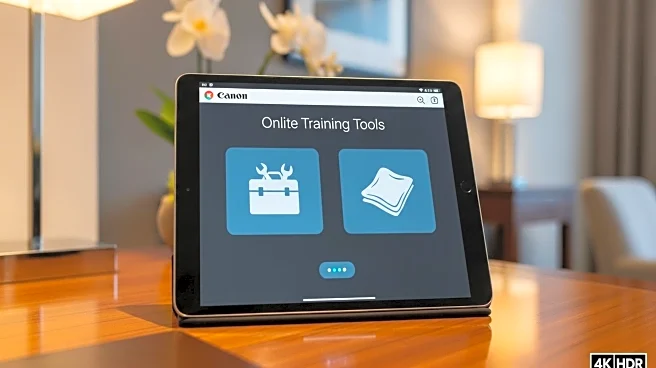What's Happening?
The hospitality industry is increasingly adopting online training tools to boost productivity and streamline operations in maintenance and housekeeping teams. These tools, integrated into Learning Management Systems (LMS), allow hotel staff to access role-specific training modules, complete interactive tutorials, and receive updates on new features. This approach addresses challenges such as high turnover rates and language barriers by providing flexible, mobile-friendly, and multilingual training options. The use of gamification in training further motivates employees by making learning interactive and rewarding, fostering a supportive environment that enhances job satisfaction and retention.
Why It's Important?
The implementation of online training tools in hotels is crucial for maintaining operational efficiency and delivering consistent guest experiences. By reducing the burden on managers for in-person instruction and allowing employees to learn at their own pace, these tools help minimize downtime and ensure staff are well-prepared for their roles. This can lead to improved employee performance, reduced turnover, and enhanced team integration, ultimately benefiting the hotel's bottom line. As the hospitality industry faces competitive labor markets, offering robust training programs can attract and retain talent, positioning hotels as desirable employers.
What's Next?
Hotels may continue to expand their use of online training platforms, integrating more advanced features and personalized learning paths to further enhance employee development. As technology evolves, these systems could incorporate artificial intelligence to tailor training experiences to individual needs, improving efficiency and engagement. The success of these tools may also encourage other industries to adopt similar approaches, potentially transforming workforce training across sectors.
Beyond the Headlines
The shift towards online training tools reflects broader trends in workplace learning, emphasizing flexibility, accessibility, and continuous development. This approach aligns with the expectations of younger, tech-savvy workers who value digital tools and professional growth opportunities. It also highlights the importance of creating inclusive training environments that cater to diverse learning styles and backgrounds.









